Can I Recycle ... ?
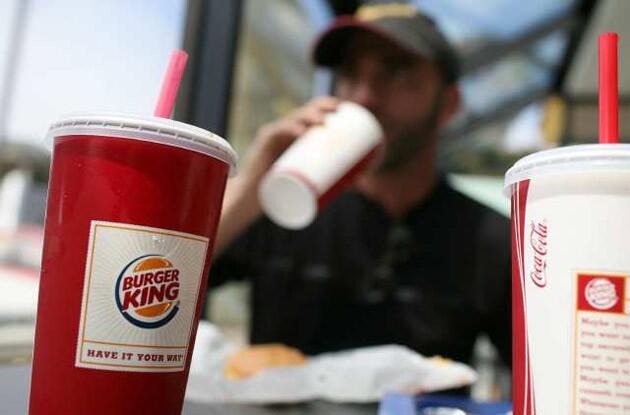
Cold drinks usually come in two types of cups at fast-food restaurants -- entirely plastic or paper coated with polyethylene. In Los Angeles, only cups that are 100% plastic can be recycled in the blue bin. Plastic-coated paper cups must go in the trash because they’re considered a mixed material that can’t be separated into component parts.
Arcadia: Both
Burbank: Only cups that are entirely plastic
Glendale: Both
Long Beach: Only plastic marked with a recycling number
Los Angeles: Only plastic
Manhattan Beach: Both
Pasadena: Only plastic marked with a recycling number
Riverside: Both
Santa Barbara: Neither
Santa Monica: Both
Torrance: Only plastic marked with a recycling number
Unincorporated L.A.: Only plastic
West Hollywood: Both
(Justin Sullian / Getty Images)
Each week we explain the recycling potential for an item that might be confusing. Because policies and recommendations can vary from city to city, each week we ask a sampling of officials from different municipalities to weigh in.
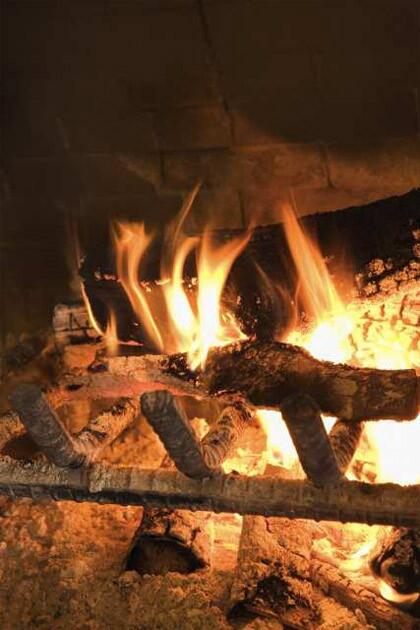
The city of Los Angeles discourages the disposal of fireplace ash in the green bin for yard waste. Many residents burn wood that is chemically treated, or they burn commercially produced fire logs that may contain toxic additives and chemicals. The ash from such items contaminates the green waste that the city recycles as compost or mulch.
Burbank: No
Culver City: No
Glendale: Yes, if completely cooled
Long Beach: No
Manhattan Beach: No
Riverside: No
Santa Barbara: No
Santa Monica: Yes, if completely cooled (Thinkstock / Getty Images)
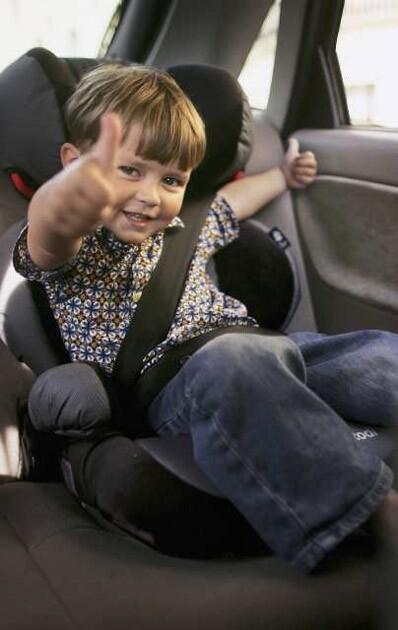
Car seats can be recycled by Los Angeles residents in their blue bins. Although car seats are constructed from different types of materials, including plastic, metal, foam and fabric, and the city usually does not accept items made of mixed materials, car seats are 90% plastic by weight. That makes them valuable. L.A. sends the car seats to a reprocessor that dismantles them into their component parts and recycles the plastics and metals.
Culver City: No.
Glendale: Yes, but only through bulk bin pickup.
Long Beach: No.
Los Angeles: Yes.
Manhattan Beach: Only the plastic base.
Riverside: Yes.
Santa Barbara: Yes, if metal or plastic.
Santa Monica: No. (Bruno Vincent / Getty Images)
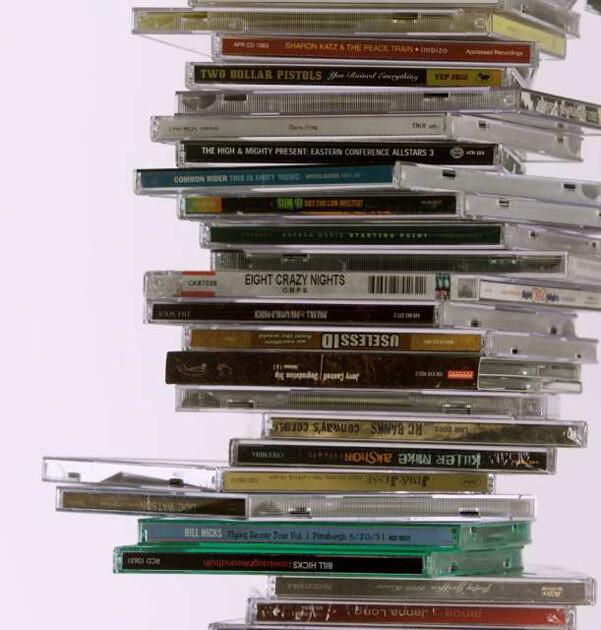
Los Angeles residents can place CDs and DVDs in the blue recycling bin because they are made of polycarbonate, which the city says has value in the recycled-materials market. CD jewel cases and DVD movie cases also can be recycled in the blue bin as long as they are empty and the paper sleeves have been removed. The paper sleeves also can be recycled but must be placed separately in the blue bin.
Burbank: No
Culver City: No
Glendale: Yes
Irvine: Yes
Long Beach: No
Los Angeles: Yes
Manhattan Beach: No
Riverside: No
Santa Ana: Yes
Santa Barbara: Yes
Santa Monica: No (Kirk McKoy / Los Angeles Times)
Advertisement
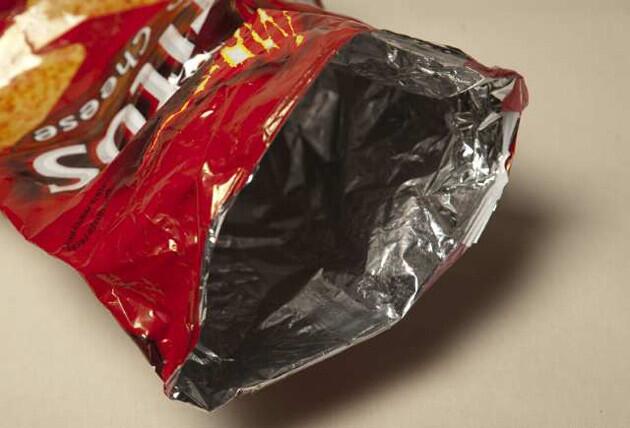
Most potato and tortilla chip bags are made from aluminum laminated with polypropylene, also known as metalized polypropylene, or low-density polyethylene film. They cannot be recycled in the city of Los Angeles’ blue bins because the component materials cannot be separated.
Some chip bags are labeled as compostable, but they cannot go in the city’s green bins because the bags do not break down quickly enough in the city’s composters. The bags cannot be recycled in the city’s blue bins either. The bags go into the black bins with the trash.
Burbank: No
Irvine: No
Long Beach: No
Los Angeles: No
Riverside: Yes
Santa Ana: No
Santa Monica: No
Torrance: No
Unincorporated L.A. County: No
Ventura: No
(Katie Falkenberg / For The Times)
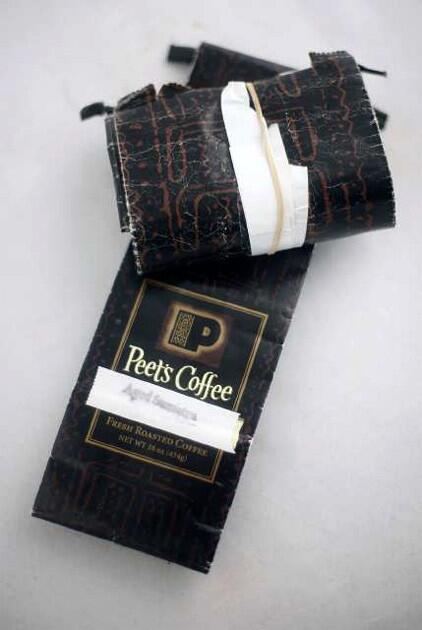
Coffee bags made entirely of paper can be recycled in Los Angeles’ blue bins if the bag is empty. Coffee bags that are coated with polypropylene film or aluminum cannot be recycled because the mixed materials cannot be separated.
Burbank: No
Irvine: Only if bags are all paper or all aluminum
Long Beach: No
Los Angeles: Only if entirely paper
Riverside: No
Santa Ana: Only if all paper or all aluminum
Santa Monica: Yes
Torrance: No
Unincorporated L.A. County: No
Ventura: No
(Bob Chamberlain / Los Angeles Times)
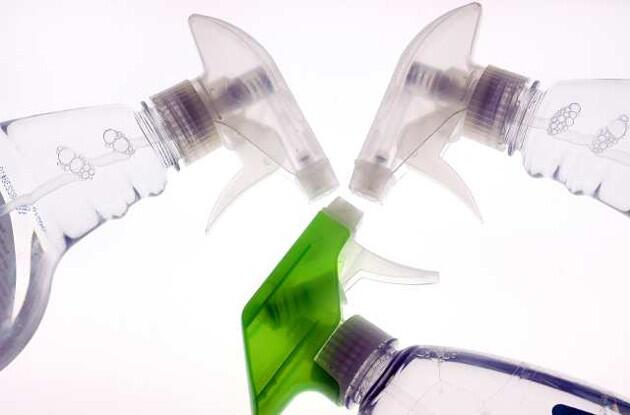
Many housecleaning products come in plastic bottles with a nozzle, sprayer or pump mechanism. The main body of the bottle is usually made from high-density polyethylene, which can be recycled. The spray mechanism, however, can be constructed from different materials -- often a metal spring housed inside plastic.
Mixed materials often cannot be recycled, but in the city of Los Angeles, the bottle and the spray top can be recycled in the blue bin. The bottle and the sprayer do not need to be separated because they are ground up in processing. Policies and recommendations can vary from city to city, so each week we ask a sampling of officials from various municipalities to weigh in. Can you recycle spray bottle tops in ...
Burbank: Not curbside. They can be placed in the mixed plastics bin at the Burbank Recycle Center.
Irvine: No.
Long Beach: No.
Los Angeles: Yes.
Riverside: Yes.
Santa Ana: No.
Santa Monica: Yes.
Torrance: Yes.
Unincorporated L.A. County: Only if the sprayer does not contain a metal spring.
Ventura: No. (Ken Kwok / Los Angeles Times)
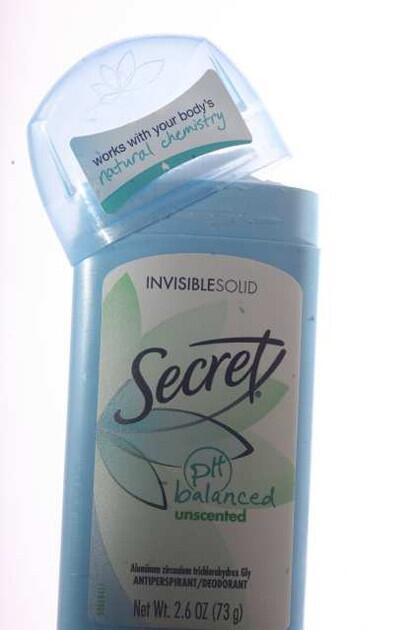
Plastic deodorant stick tubes are generally made from polyethylene and can be recycled in L.A.’s blue bins as long as the deodorant containers are empty.
Arcadia: Yes.
Burbank: Not curbside. They can be brought to the Burbank Recycle Center and placed in the plastic film bin.
Long Beach: Yes.
Los Angeles: Yes, if empty.
Manhattan Beach: Yes.
Riverside: Yes.
Santa Monica: No.
Torrance: Only if marked with recycling symbol.
Ventura: Yes. (Bob Chamberlain / Los Angeles Times)
Advertisement
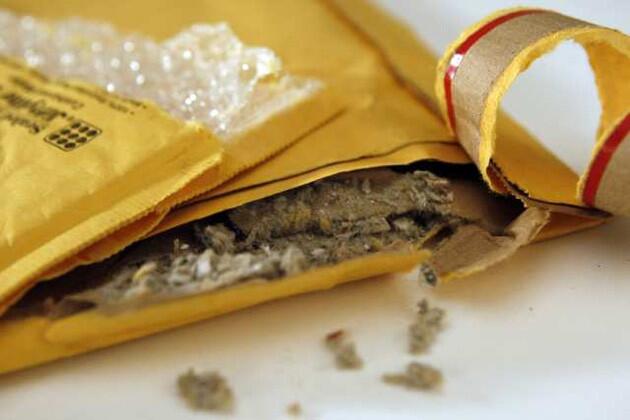
Three types of padded envelopes land in mailboxes. Paper envelopes with plastic bubble padding cannot be recycled in Los Angeles’ blue recycling bins because the mix of paper and plastic isn’t easy to separate. Paper envelopes padded with shredded paper, however, and plastic envelopes padded with plastic bubbles both can be recycled in the blue bin.
Burbank: Not curbside. Plastic envelopes padded with plastic bubbles can be recycled at the Burbank Recycle Center.
Glendale: No.
Long Beach: Yes, but only plastic envelopes padded with plastic bubbles.
Los Angeles: Yes, but only paper padded with paper or plastic padded with plastic.
Manhattan Beach: Yes, all types.
Riverside: Yes, but only paper padded with paper.
Santa Monica: Yes, but only paper padded with paper.
Torrance: Yes, all types.
Unincorporated L.A. County: Yes, all types.
Ventura: Yes, but only plastic padded with plastic. (Kirk McKoy / Los Angeles Times)
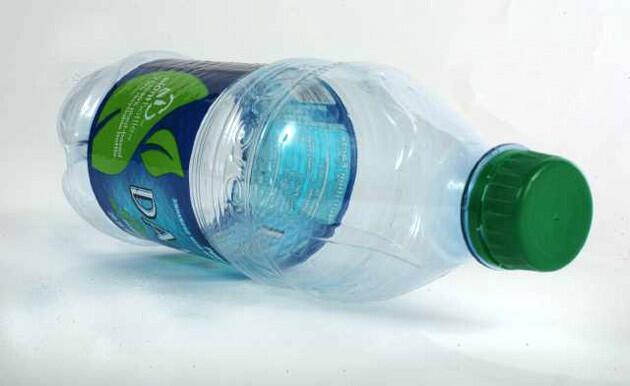
The PlantBottle is a container made with plant-based plastics. It was pioneered by Coca-Cola Co. and introduced by some Coke brands in April. Now all single-serve Odwalla bottles are made from plant-based high-density polyethylene, or HDPE. All single-serve Dasani water bottles are now made with as much as 30% plant-based polyethylene, or PET. The plastics are derived from sugar cane-based ethanol from Brazil. According to Coca-Cola, more than 5 billion PlantBottles will be sold in more than 15 countries this year.
In Los Angeles, both types of PlantBottles are recyclable. They are not compostable.
Burbank: Yes
Glendale: Yes
Long Beach: Yes
Los Angeles: Yes
Manhattan Beach: Yes
Riverside: Yes
Santa Monica: Yes
Torrance: Yes
Unincorporated L.A. County: Yes
Ventura: Yes (Bob Chamberlin / Los Angeles Times)
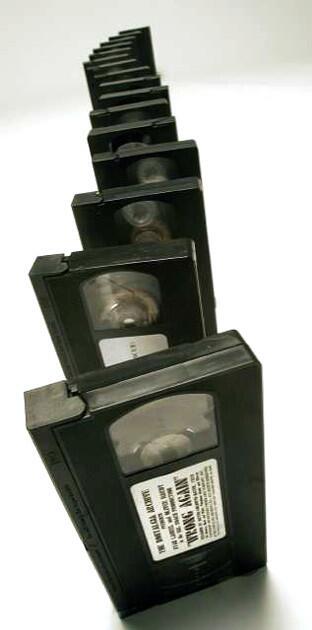
VHS tapes are made with a rigid polystyrene shell, which Los Angeles residents can recycle by itself in their blue bins. But the tape inside is made from a different material that tangles around recyclers’ sorting equipment and could cause machinery to break down. The city’s Bureau of Sanitation recommends reusing or donating VHS tapes as a first option or recycling them through a mail-in recycling service, such as Greendisk.com or NationwideRecycleByMail.com.
Burbank: No
Glendale: No
Long Beach: No
Los Angeles: Only the black tape casing, not the tape
Manhattan Beach: No
Riverside: No
Santa Monica: Only if brought to the Santa Monica Transfer Station and placed with e-waste
Torrance: No
Unincorporated L.A. County: Yes
Ventura: No (Kirk McCoy / Los Angeles Times)
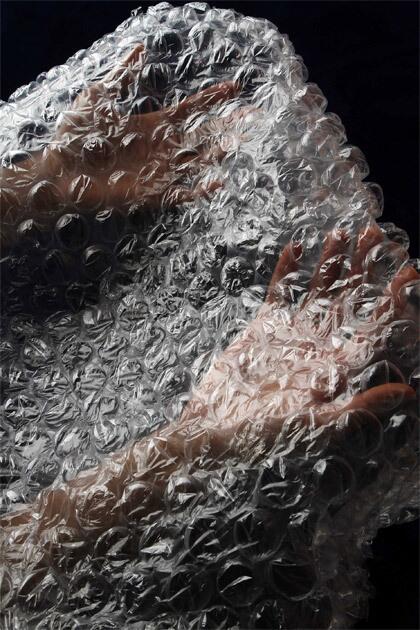
UPDATE: Plastic bubble wrap is now recyclable in L.A.’s blue bin.
Arcadia: Yes
Burbank: No. It can be brought to the Burbank Recycle Center and placed in the plastic film bin.
Culver City: No
Long Beach: Yes
Los Angeles: No
Riverside: Yes
Santa Monica: No. It can be brought to the Santa Monica Community Recycling Center for bundling with like materials.
Torrance: No
Ventura: No (Kirk McKoy / Los Angeles Times)
Advertisement
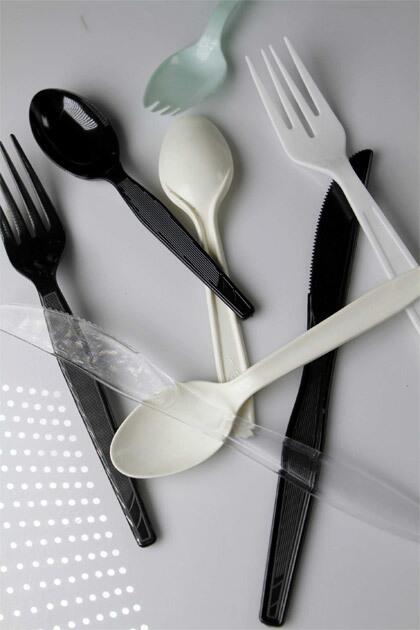
Although plasticware and plastic drinking straws are rarely marked with recycling symbols, they are recyclable in L.A.’s blue bin.
Burbank: Not curbside. Plastic utensils and drinking straws can be placed in the mixed plastics bin at the Burbank Recycle Center
Culver City: Utensils, yes
Long Beach: No
Riverside: Yes
Santa Barbara: No
Santa Monica: No
Torrance: No
Ventura: Yes
(Kirk McKoy / Los Angeles Times)
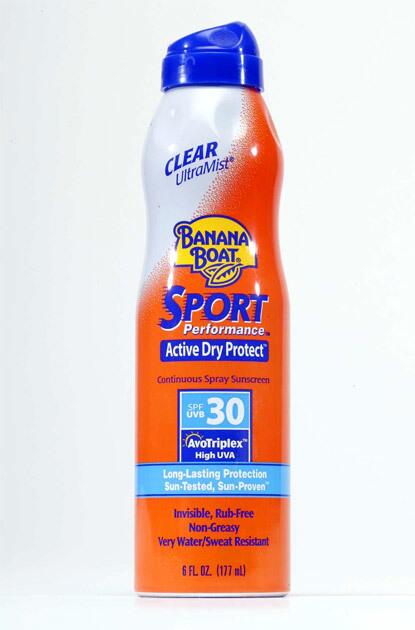
Metal sunscreen spray bottles are generally made of aluminum, a highly recyclable metal. Even though they are often topped with a plastic, push-button sprayer top, the bottles can be placed in the blue bin in Los Angeles as a single unit -- as long as the bottles are entirely empty.
Arcadia: Yes, if empty
Burbank: Yes, if empty
Huntington Beach: Yes
Long Beach: Yes, if empty
Manhattan Beach: Yes, if empty
Riverside: Yes, if empty
Santa Monica: Yes, if empty
Torrance: Yes, if empty
Ventura: Yes, if empty
(Gary Friedman / Los Angeles Times)
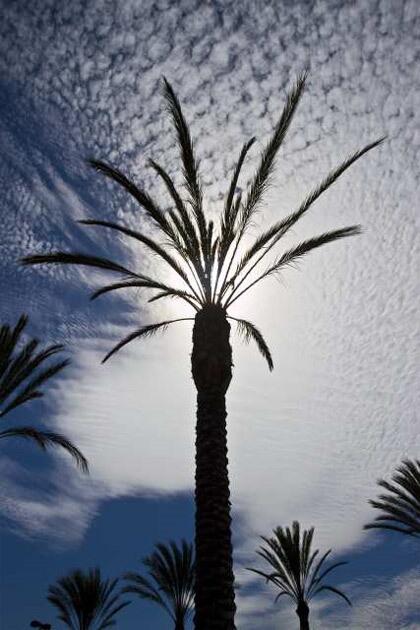
Palm fronds trimmed from trees at L.A. homes and on private property can be recycled in L.A.’s green waste bin.
The seeds from the palm head (the fleshy rind and hard kernel) are not recyclable in the green bin; they are trash and should be placed in the black bin. The city’s mulching equipment is not able to grind the seeds adequately to prevent them from germinating and growing into new palm trees.
Arcadia: No
Burbank: Yes, in the green bin
Irvine: No
Glendale: No
L.A.: Yes, in the green bin
Pasadena: No
Riverside: Yes, in the green bin
Santa Ana: No
Santa Monica: No
Torrance: No
Unincorporated L.A.: No
Ventura: No
(Ricardo DeAratanha / Los Angeles Times)
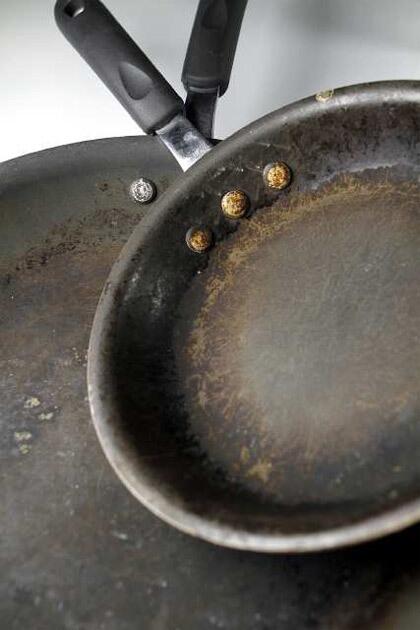
In Los Angeles, cooking pans, no matter what metal they’re made of and coated with, can be recycled in the city’s blue bin. The pans are recycled through a scrap metaler. Pan handles, made from plastic or other materials, are disassembled at the scrap metal processing center.
Arcadia: No
Burbank: Not curbside, but they can be recycled in the Burbank Recycle Center’s mixed metals bin
Glendale: Yes
Irvine: No
L.A.: Yes
Pasadena: No
Riverside: Yes
Santa Ana: No
Santa Monica: Yes
Torrance: No
Unincorporated L.A.: No
Ventura: Yes
(Kirk McKoy / Los Angeles Times)
Advertisement
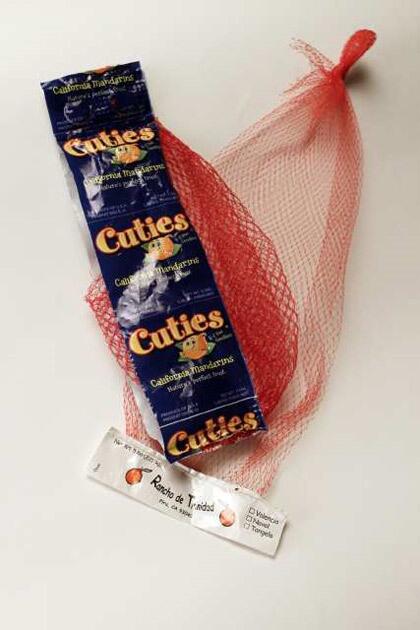
Generally made from polyethylene plastics No. 1, 2 and 4 or polypropylene plastic No. 5, they aren’t labeled with recycling symbols, but they are recyclable in L.A.’s blue bin.
Netted produce bags that resemble fabric fishing nets, like the nylon bags used for a brand of citrus called Cuties, are not recyclable, because they can get tangled in the sorting equipment at recycling facilities. Netted produce bags made from nylon and other fabric-like synthetics are trash and should be placed in the black bin.
The difference between the two types of bags is often in the feel; netted bags have small knots in the intersecting lines of the netting.
For both types of bags, reuse is best. Use them to carry fruits purchased at farmers markets or for wet swim suits at the beach.
Arcadia: Yes
Burbank: Not curbside. They can be placed in the mixed plastics bin at the Burbank Recycle Center.
Glendale: No
L.A.: Yes, if stretchy plastic. No, if mesh.
Riverside: No
Santa Monica: No
Torrance: No (Anne Cusack / Los Angeles Times)
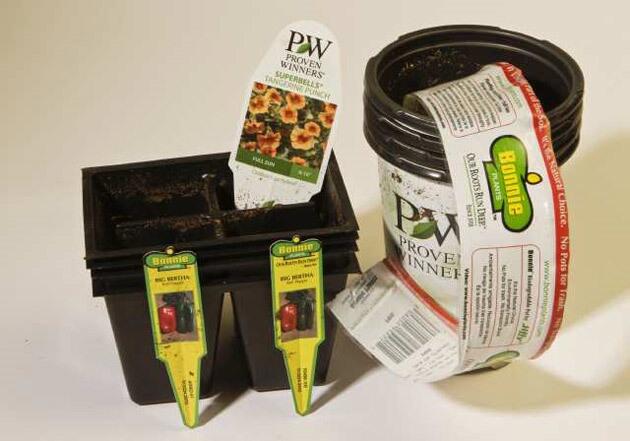
As spring planting season closes, home gardeners may find themselves with a lot of plastic trays, pots, wrappers and tags. Most plant trays and pots are made from plastic — usually high-density polyethylene (plastic No. 2), polypropylene (plastic No. 5) or polystyrene (plastic No. 6), all of which are recyclable in L.A.’s blue bin.
Plastic plant pots that are marked “compostable” cannot be recycled in the blue bin because they contaminate the other plastics. Nor can they be composted in the green bin because they take too long to break down. Compostable plastic pots must be thrown in the trash or composted in home composters.
Arcadia: Yes, except for compostable plastic.
Burbank: No in curbside program. Plastic pots, wrappers and tags can be dropped in the mixed plastics bin at the Burbank Recycle Center.
Glendale: Plastic pots with recycling numbers, yes. Compostable plastic pots, no. Plastic wrappers, yes. Plastic tags, yes.
Long Beach: Plastic pots with recycling numbers, yes. Compostable plastic pots, no. Plastic wrappers, no. Plastic tags, no.
Los Angeles: Plastic pots with recycling numbers, yes. Compostable plastic pots, no. Plastic wrappers, yes. Plastic tags, yes, if wrapped in bag.
Riverside: Plastic pots with recycling numbers, wrappers and tags, yes. Compostable plastics, green bin.
Santa Monica: Plastic pots with recycling numbers, yes. Compostable plastics, no. Plastic wrappers, no. Plastic tags, no.
Torrance: Yes, if clean and marked with recycling symbol.
Ventura: Plastic pots with recycling numbers, yes. Compostable plastic pots, no. Plastic wrappers and tags, no. (Anne Cusack / Los Angeles Times)
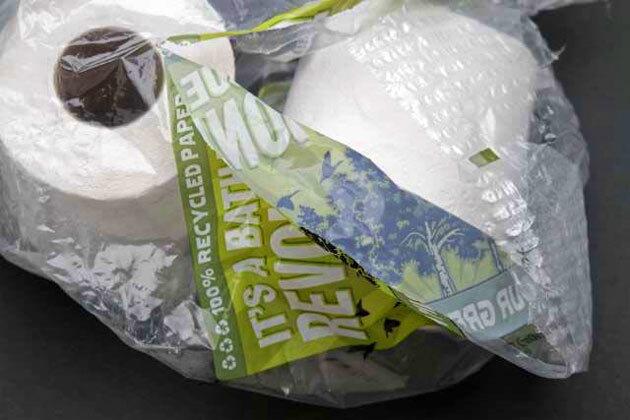
Most of the plastic wrap around toilet paper and paper towels is made from film plastic, usually low-density polypropylene, or LDPE plastic No. 4. Although it is rarely marked with chasing arrows or a recycling symbol, it is recyclable in L.A.s blue bin.
Arcadia: Yes
Glendale: Yes
Irvine: Yes
Riverside: Yes
Santa Monica: No
Torrance: Only if marked with a recycling symbol.
(Ricardo DeAratanha / Los Angeles Times)
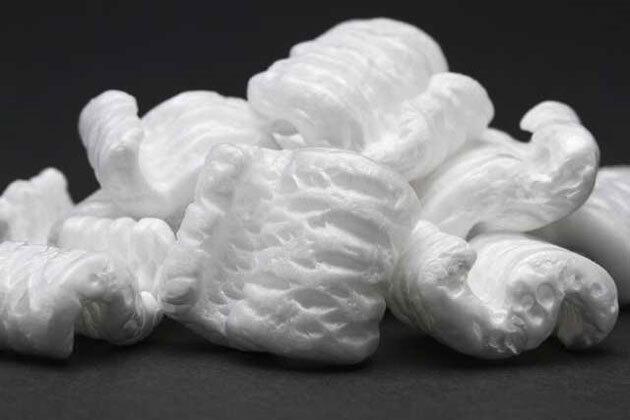
Styrofoam, also known as expanded polystyrene, is a type of plastic that can be injected, extruded or blow molded. It comes in different forms, from pellets to peanuts to food containers, all of which can be recycled through L.A.’s blue bin.
Styrofoam beads and peanuts must be put in plastic bags before being placed in the recycling bin because they are so light they will fly out of the bin when it’s lifted into the collection truck. The city recommends reuse as a first option for peanuts; many pack-and-ship companies accept the donation of clean and dry packing peanuts for reuse.
Arcadia: Beads and peanuts, no. Food containers, yes, if clean
Culver City: No
Glendale: No
Irvine: No
Riverside: Yes
Santa Monica: No
Torrance: Beads and peanuts, no. Food containers, yes, if clean
(Ricardo DeAratanha / Los Angeles Times)
Advertisement
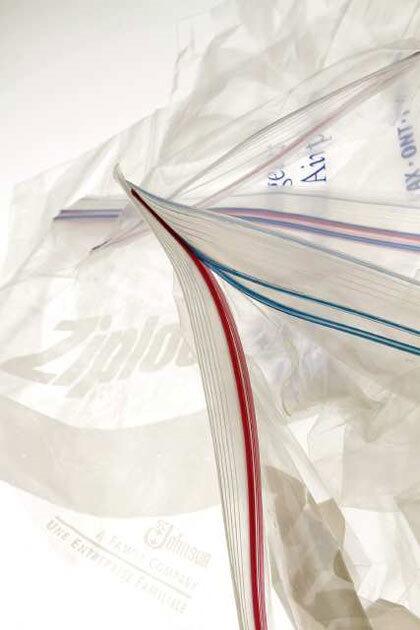
Ziploc bags, and other brands of sealable plastic food storage bags, are not marked with a recycling symbol but they are recyclable in L.A.’s blue bin as long as they are clean and dry.
Arcadia: Yes
Culver City: No
Glendale: Yes
Long Beach: Yes
Riverside: Yes
Santa Monica: No
Torrance: No
(Kirk McKoy/ Los Angeles Times)
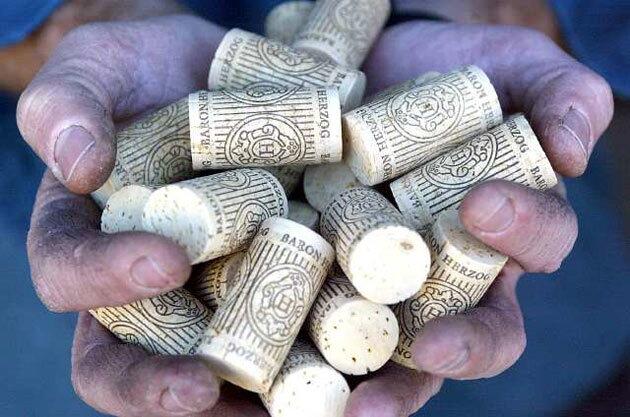
About 55 million cases of bottled wine are sold in California each year. Of those, about 70% are closed with cork stoppers, 16% with metal screw tops and 14% with plastic, according to Amorim, the Portuguese cork supplier that runs the cork-reclamation group ReCork. (Spencer Weiner / Los Angeles Times)
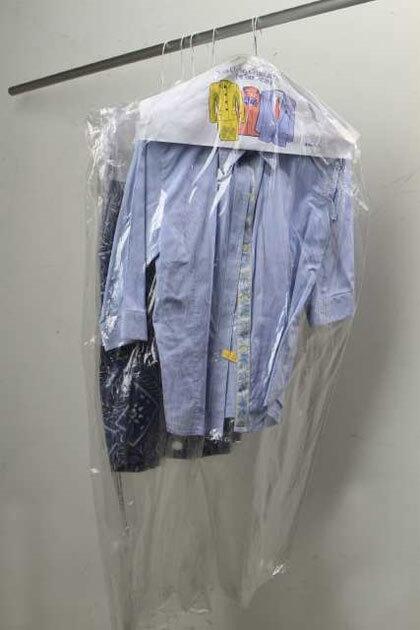
In Los Angeles, yes. The plastic bags that cover dry cleaning are generally made from linear low density polyethylene, or LLDPE plastic No. 4 — an unpigmented plastic film that feels slightly tacky to the touch.
Hangers that are made entirely of metal are recyclable, as are hangers made entirely of plastic.
Hangers that are a mix of metal and plastic cannot be recycled in the blue bin because the mixed materials cannot be readily separated.
Glendale: Yes.
Long Beach: Yes for bags. No for hangers.
Manhattan Beach: Yes.
Torrance: Yes for bags if they are marked with a recycling symbol. Yes for hangers.
West Hollywood: Yes. (Kirk McKoy / Los Angeles Times)
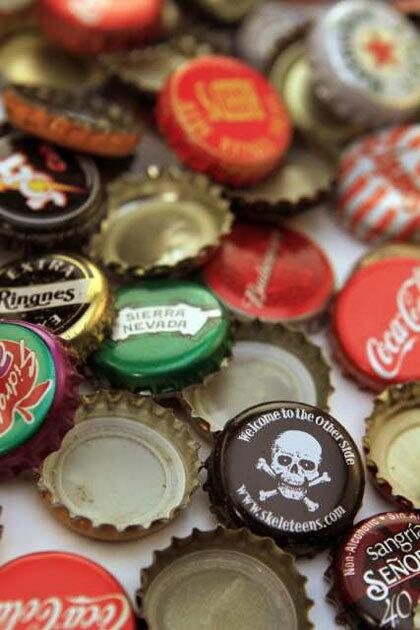
The city of Los Angeles recycles metal beer and soda bottle caps as well as metal jar lids. While most metal caps and lids are lined with a thin coating of polyethylene, the plastic is burned off during the processing and melting of the metal.
Burbank: Yes
Glendale: Yes
Long Beach: Yes
Pasadena: Yes
Santa Monica: Yes
Torrance: Yes (Kirk McKoy / Los Angeles Times)
Advertisement
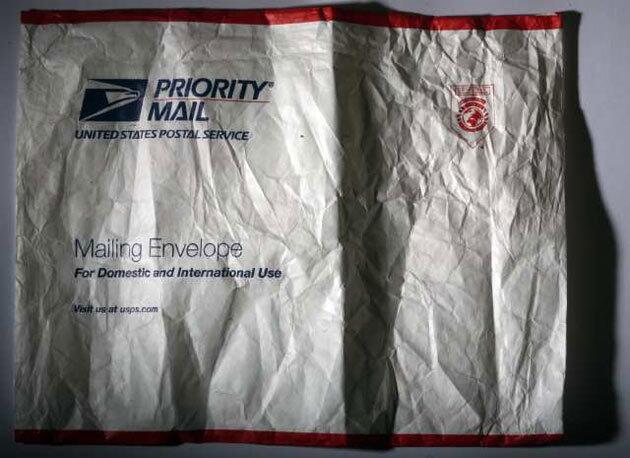
Tyvek is a material made by DuPont that is often made into signs, wristbands, mailing envelopes and other items that need to be flexible, durable, untearable and water-resistant. Though Tyvek is made from woven-together, high-density polyethylene plastic fibers, it is not recyclable in L.A.’s blue bin.
Glendale? Yes
Long Beach? No
Manhattan Beach? Yes
Pasadena? No
Torrance? No (Bob Chamberlain / Los Angeles Times)
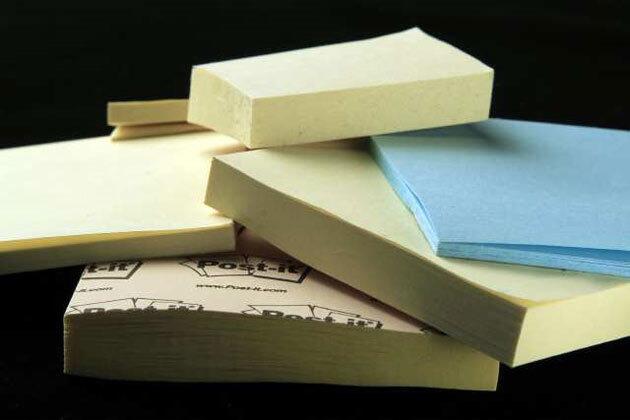
3M Post-it Notes and their even stickier counterpart, Post-it Super Sticky Notes, are recyclable in L.A.¿s blue bin. While the notes are typically colored and also have an adhesive strip on one side, the dye and the pressure-sensitive glue are mostly removed from the paper in a chemical de-inking and pulping process that separates them from the paper, enabling the paper to still be recycled.
Glendale: Yes
Manhattan Beach: Yes
West Hollywood: Yes
Torrance: Yes (Kirk McKoy / Los Angeles Times)
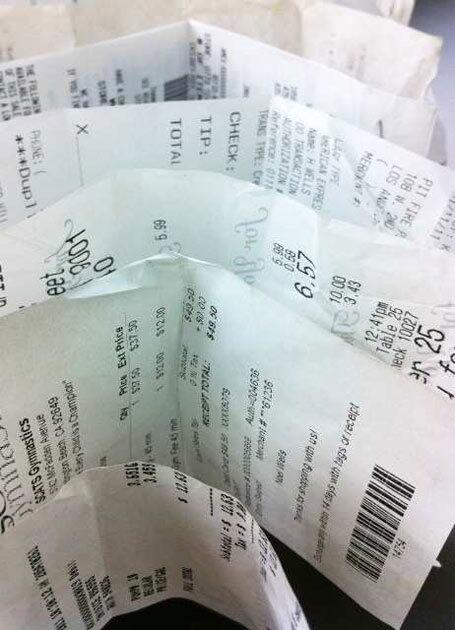
In Los Angeles, cash register receipts made from thermal paper are not recyclable and should be placed in the black trash bin. The Bureau of Sanitation recommends that residents seal the receipts in garbage bags or combine them with other pieces of trash so they don’t float away.
Manhattan Beach? Yes
Pasadena? Yes
Pomona? Yes
Santa Monica? Yes
West Hollywood? Yes (Ken Kwok / Los Angeles Times)
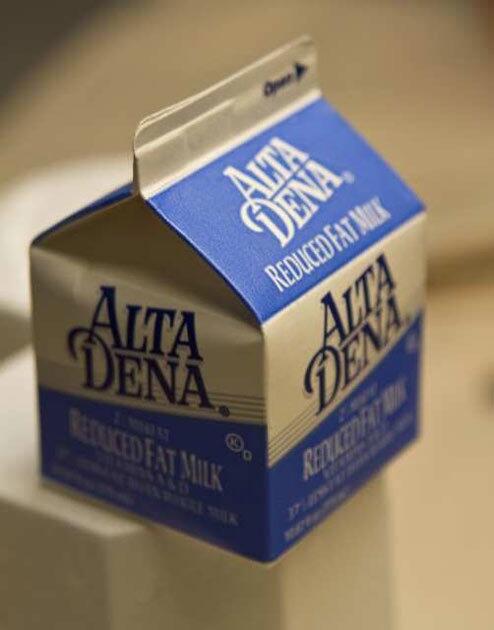
Coated paper drink cartons are not recyclable in the city of L.A. because they are a mixed commodity and more difficult for the city’s recycling facilities to sell. They are, however, part of a pilot program along with Tetra Pak for possible inclusion in the blue bin program because “the landscape of new consumer products as well as new markets for what is recyclable is dynamic and ever changing,” said Jimmy Tokeshi, public information officer for the city’s Department of Public Works.
Glendale? No
Long Beach? Yes (purple bin)
Santa Monica? Yes (blue bin)
Torrance? Yes (gray bin) (Don Kelsen / Los Angeles Times)
Advertisement
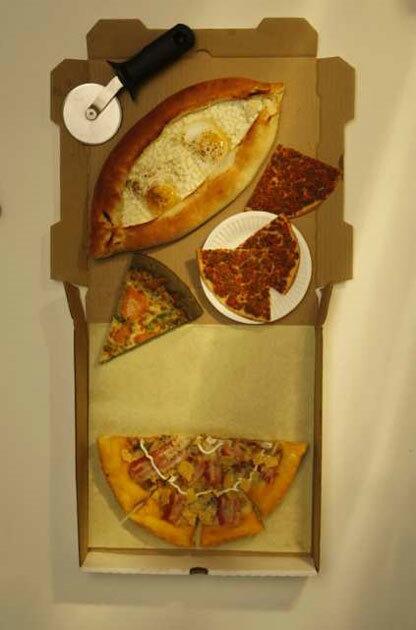
The Los Angeles Bureau of Sanitation advises L.A. residents to put the pizza box in the blue bin as long as the waxed paper, box support and pizza remnants have been cleared out. No cheese residue can remain. Minor splotches of grease are OK, but any part of the box with major grease stains should go with trash in the black bin, bound for a landfill.
Glendale? Burbank? Torrance? Yes, if it isn’t greasy. (Anne Cusack / Los Angeles Times)



